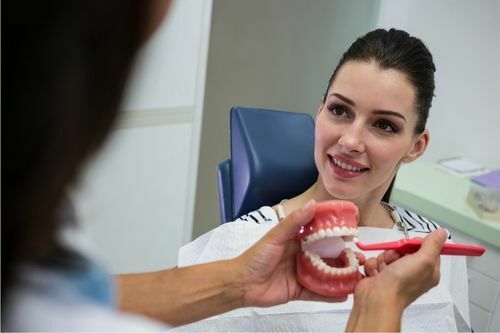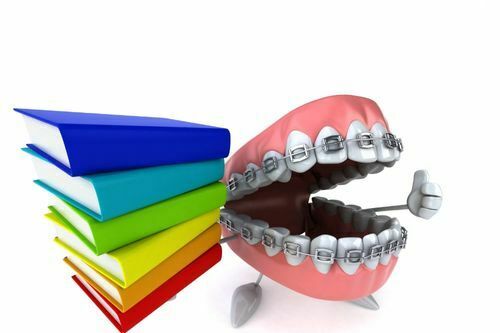Table of Contents
Dental specialization or the study of teeth is regarded as one of the fields of human medicine concerned with researching not only the teeth but also the area of the mouth and face. Teeth are valuable for the well-being of humans, hence study of teeth is significant in the field of human medicine.
Dentistry is a surgical practice that focuses on the diagnosis, treatment, and prevention of disorders and injuries to the teeth, particularly those to the jaws and oral cavity. With the significant technical improvement in radiology and the materials used in the treatment of diseases, restorations, and aesthetic dentistry, the dental specialty has elevated to one of the top areas of study for many students.
Dentistry also has a long history that dates back to 7,000 BC. As a result, this specialty has made great strides due to civilizational and technological advancement, and it is now regarded as one of the most crucial medical specializations.
Definition of study of teeth

Dentistry is the broad term for the study of teeth. The study, diagnosis, prevention, and treatment of illnesses, disorders, and conditions of the dentition, and oral cavity, including the oral mucosa, as well as the adjacent, related structures and tissues of the maxillofacial zone, are included in this discipline of medicine.
Types of dentistry
It is a branch of medicine that looks after teeth in terms of their resilience and the treatment of illnesses, particularly those affecting the jaws, as well as beautifying, safeguarding, and keeping up an attractive appearance. As a result, there are various sections within the specialty of dentistry. The study of teeth includes several different departments such as the Department of Dental Beautification, the Department of Whitening and Restoration, and the Department of Filling.
Importance of the study of teeth

It is well established that oral health affects overall health. A person’s whole health is affected by the condition of their mouth and teeth. Strong, healthy, and clean teeth are the foundation for infection control. We frequently hear that certain disorders can affect the teeth. The dentist treats them to protect human life and provide safety.
The study of teeth is not just limited to dentistry. Instead, it is concerned with the relationship between the patient’s psychological state and the muscles of the face, neck, tongue, and even teeth. All of this translates to the most significant motivations for pursuing a career in dentistry and the benefits that attract students, such as the dentist’s high social standing, ability to work independently, increase in annual income over time, ability to help people, and stable employment.
For further information, we have a list of a few more benefits of dental specialization, such as-
- People’s lives are deeply impacted by their dentists.
- Removing teeth-related pain and abnormalities helps patients feel better.
- Gives the patients a beautiful appearance.
- The dentist can create their business plans because they are self-sufficient in their work.
- Once they have a practice, they can open their clinic.
- The study of dentistry as a specialty enables a doctor to work in academic domains at various universities and colleges, as well as in research and development facilities.
- Dentistry is one of the areas of medicine that provides the doctor with both outstanding financial and social welfare is the dentistry specialty.
What is taught in the study of teeth?
Dentistry is a field of medicine that focuses on understanding, identifying, and treating conditions affecting the mouth, face, jaws, teeth, and surrounding tissues. It includes a variety of subspecialties, such as dental treatment and maintenance, dental compensation, orthodontics, fixed bridges, and dental implants.
Pediatric dentistry, full mobile kits, oral and maxillofacial surgery, and gum disease are some of the other branches of dentistry.
To graduate and become qualified to take part in treatment, a dental student must concentrate on the study of many different fields.
In most nations around the world, the initial academic stage for dentistry specialization is restricted to five years to get a bachelor’s degree and subsequently practice the profession.
In general, the study is spread out across those five years in such a way that the dental student progresses from the foundational stage to clinical knowledge and finally practical training.
At the first level, the emphasis is on medical life sciences, including anatomy (tissue), pharmacology and physiology, microbiology, physics, and an introduction to clinical dentistry, followed by the study of subjects related to the specialization of dentistry, such as dental caries, restorative dental treatment, prosthetic dental treatment, and dealing primarily with children.
Oral and dental radiology, head and neck anatomy, and computer applications for the health sciences are also included at this level.
At higher levels, a student’s knowledge of dentistry broadens to include orthodontics, anesthesia and dealing with a variety of patients. Practical lessons begin in clinics and laboratories so that the student can train in placing bridges, fixing broken teeth, creating fillings, and many other types of dental treatment, as well as becoming familiar with cosmetology techniques in a medical specialty that focuses on the teeth.
Applications of dentistry
- The dentistry specialty covers a wide range of work fields.
- The doctor can practice in a variety of settings, including dental clinics, hospitals, and primary care clinics. This implies that the dentist can perform both surgery and detection.
- The dentist can thereafter pursue employment in academics.
- They can work as a teacher in academic institutions, colleges, research centers, and universities that focus on medical science.
Key takeaways
- One of the fields of human medicine that focuses on studying not just the teeth but also the area of the mouth and face is dental specialization or the study of teeth.
- The field of dentistry has several subfields. The Department of Dental Beautification, the Department of Whitening and Restoration, and the Department of Filling are a few examples of these.
- The dentist’s specialty covers a wide range of work fields. The doctor can practice in a variety of settings, including dental clinics, hospitals, and primary care clinics. This implies that the dentist can perform both surgery and detection.
Did you find this blog informative? If so, please share your thoughts in the comments section below. Click here to contact us for more information on the study of teeth. We would be happy to assist you with your queries.
Liked this blog? Read next: Anthropology | Everything you need to know about the subject!
FAQs
Q1. What is the study of teeth in forensics called?
Ans- To submit dental evidence in the interest of justice, it must be handled, examined, and evaluated properly. Forensic teeth odontology is used for this. The age (in children) and identity of the individual to whom the teeth may belong, as well as any evidence that may be inferred from the teeth, are studied by forensic teeth odontologists.
Q2. How many nerves are there in a tooth?
Ans- Teeth in the front of the mouth have one root and one nerve canal within the root.
Q3. What are the types of teeth?
Ans- Types of teeth are as given below-
- Incisors.
- Canines.
- Premolars.
- Molars.







